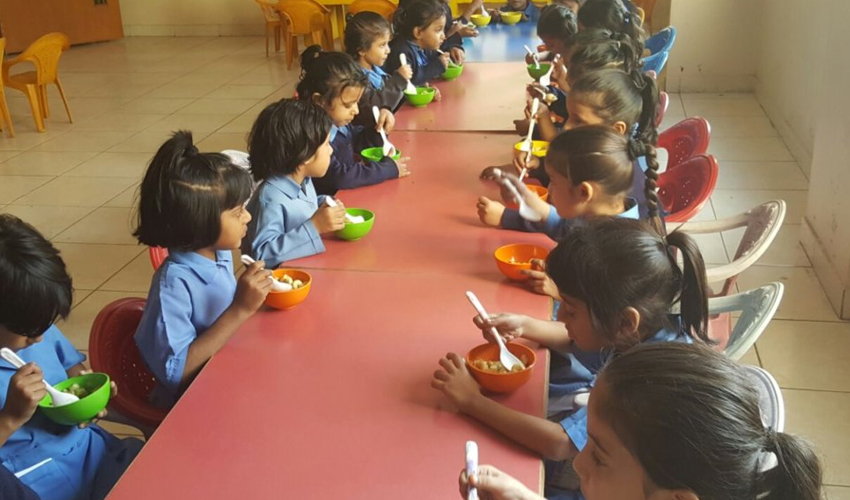Islamabad, May 2, 2025: The Sindh government, in partnership with the World Food Programme (WFP), is launching a one-year pilot School Meals Project in Malir District for the 2025–2026 academic year, with a total budget of Rs578.39 million.
This project is designed to provide daily hot meals to 11,000 primary school students (up to grade five), aiming to improve nutrition, increase school attendance, and enhance academic performance.
In a meeting at the Chief Minister’s House, Sindh’s Chief Minister Syed Murad Ali Shah and WFP Country Director Coco Ushiyama discussed the school feeding initiative, as well as their ongoing collaboration on maternal and child healthcare.
The meeting also explored expanding current projects like Nashonuma and Mamta to address malnutrition more effectively.
Under this joint funding model, the Sindh government will contribute Rs462.71 million, accounting for 80% of the total budget, while the WFP will supply the remaining Rs115.68 million.
The program is expected to reduce hunger in classrooms, improve concentration and learning, and encourage greater school enrolment, especially among girls.
A centralised kitchen will be set up to prepare, package, and distribute meals, which will include lentils, rice or bread, vegetables, and fruit on a weekly basis.
The Sindh Food Authority, along with a designated Food Safety Officer, will ensure that food hygiene and nutritional standards are maintained.
The WFP will manage the implementation through a third-party contractor and oversee monitoring and evaluation.
The selected schools will be located in peri-urban areas of Malir, meeting the necessary infrastructure criteria such as access to clean water, sanitation facilities, and a minimum number of students.
A comprehensive monitoring system will be put in place to track student enrolment, attendance, and retention, aiming for a daily attendance rate of at least 70%.
Baseline and endline assessments by the WFP will evaluate the program’s success and guide future expansion across Sindh. Performance will be assessed using data from the Education Management Information System (EMIS) and school records.
Chief Minister Murad Ali Shah emphasized the wider benefits of the project, noting that it could reduce child malnutrition, generate local employment through food sourcing, and strengthen community food systems. He also pointed out the program’s importance in promoting gender equality by increasing female participation in education.
Read More: Kinnaird College Student Dies After Fall From First Floor in Tragic Lahore Incident
Ms. Ushiyama provided updates on the WFP’s ongoing efforts in Sindh, particularly in maternal and child nutrition, focusing on issues such as stunting, wasting, conditional cash transfers, and food supplement distribution to combat malnutrition.
CM Shah expressed appreciation for the WFP’s ongoing partnership and reaffirmed Sindh’s commitment to advancing public health and education through sustainable, nutrition-focused interventions.









